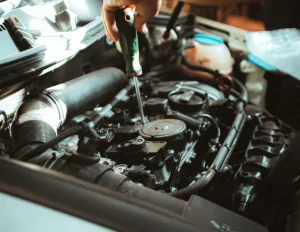🔧 Introduction
While most vehicle owners are meticulous about washing their car’s exterior or detailing the interior, the engine bay is often neglected. Yet, this area plays a critical role in performance and longevity. A clean engine bay allows you to detect oil leaks, worn hoses, and other mechanical issues before they turn into costly repairs. Not only does it improve mechanical visibility, but it also helps prevent the accumulation of debris that could lead to overheating or even fire hazards under extreme conditions. Understanding whether or not you need to clean your engine bay, and how to do it safely, is essential knowledge for any car owner looking to protect their investment.
⚙️ Why Cleaning Your Engine Bay Matters
Neglecting to clean the engine bay doesn’t just lead to aesthetic issues—it can cause mechanical consequences over time. When grease, dust, leaves, and debris accumulate around the engine block, they act as insulation, trapping heat and reducing cooling efficiency. This build-up can also hide early signs of leaks, cracked hoses, or frayed belts. For diesel or commercial vehicle owners, cleaning the engine bay is even more crucial due to higher exposure to oil, soot, and road grime. Whether your vehicle is a daily commuter or a high-performance luxury car, maintaining a clean engine compartment reflects proper upkeep and attention to mechanical health.
🧪 What Happens If You Don’t Clean It?
Failing to clean your engine bay over time allows contaminants to settle into crevices and wrap around vital engine components. Grease can weaken rubber seals, while debris near belts or pulleys may lead to wear and premature failure. Dirt buildup can also interfere with electrical connectors or sensors, leading to warning lights or decreased fuel efficiency. In colder climates, accumulated salt can lead to corrosion around metal components and mounts. The longer you wait, the more damage these elements can cause—turning a simple maintenance task into expensive repairs or hazardous conditions.
🧰 Step-by-Step: How to Clean Your Engine Bay Safely
1. Preparation is Key
Before starting, ensure the engine is completely cool. Working on a hot engine can cause burns or damage from rapid cooling if water is applied. Disconnect the battery terminals or cover them with plastic wrap to prevent short circuits. Also, use plastic bags or aluminum foil to cover sensitive parts like the alternator, air intake, and exposed filters.
2. Remove Dry Debris
Use a soft detailing brush or compressed air to remove dry debris such as leaves, dust, and small twigs. Focus on corners, gaps, and around the battery tray. This step minimizes the risk of spreading dry particles when water or degreaser is applied.
3. Apply Degreaser
Spray a high-quality engine degreaser on the affected areas. Let it sit for at least 3 to 5 minutes to loosen grease and buildup. Then, scrub gently with a brush, particularly around valve covers, oil caps, and belts, where grime often accumulates.
4. Rinse Carefully
Use a low-pressure hose or a spray bottle with clean water to rinse the engine bay. Never use high-pressure washers, as they can force water into electrical components or loosen connectors. Rinse thoroughly but gently, ensuring all degreaser is removed.
5. Dry and Protect
Dry the engine bay using a microfiber towel or air blower. Once dry, you can apply a water-based protectant to plastic and rubber components to restore their appearance and prevent cracking or fading over time.
🛠️ DIY vs Professional: Which is Better?
While cleaning your engine bay at home is entirely possible, it does carry certain risks. Using the wrong cleaning products, allowing water to enter the electrical system, or forgetting to cover vital components can result in costly damage. Professional services, on the other hand, use steam or foam-based techniques with precision tools and trained hands. These services also include a full inspection to detect potential problems early. For general maintenance, DIY is great—but for luxury cars, heavy-duty trucks, or when preparing a vehicle for sale, a professional engine detail may be the safer, more effective choice.
📊 Table: DIY vs Professional Engine Bay Cleaning
| Aspect | DIY Cleaning | Professional Service |
|---|---|---|
| Cost | Low (products and tools only) | Higher ($50–$150 per session) |
| Safety Risk | Medium, depending on skill level | Very low, performed by trained experts |
| Time Required | 1–2 hours, depending on grime | 30–45 minutes on average |
| Results | Varies by method and tools | Uniform, polished, and fully inspected |
| Best For | Routine upkeep every few months | Deep cleaning, resale, or luxury vehicles |
📅 How Often Should You Clean It?
The ideal cleaning frequency depends on how often and where the vehicle is driven. For urban drivers or those using their cars daily, cleaning the engine bay every 6 to 12 months is recommended. If you live in areas with heavy road salt or off-road conditions, increasing that to every 3–6 months can prevent corrosion and grime accumulation. For garage-kept or seldom-used luxury cars, an annual engine detail before inspection or resale is usually sufficient. Always consult your mechanic if unsure, especially before using degreasers or sprays that may interfere with sensitive engine electronics.
🚫 When Not to Clean the Engine Bay
Avoid cleaning the engine bay if the engine has been running within the last hour. Applying cold water to hot components can lead to cracks, warping, or even electrical failure. Do not clean in extreme cold or wet conditions unless you’re in a sheltered, dry space. If you’re unsure about your engine’s layout, or if your car includes exposed aftermarket electrical components, it’s best to consult a mechanic or schedule a professional cleaning service.
✅ Conclusion
Cleaning your engine bay is more than a cosmetic choice—it’s a protective measure that promotes engine efficiency, extends vehicle life, and helps detect problems early. Whether you clean it yourself or invest in professional detailing, this task should be part of your maintenance calendar. It may not need weekly attention, but periodic cleaning can prevent costly repairs and ensure your vehicle continues to perform at its best.

